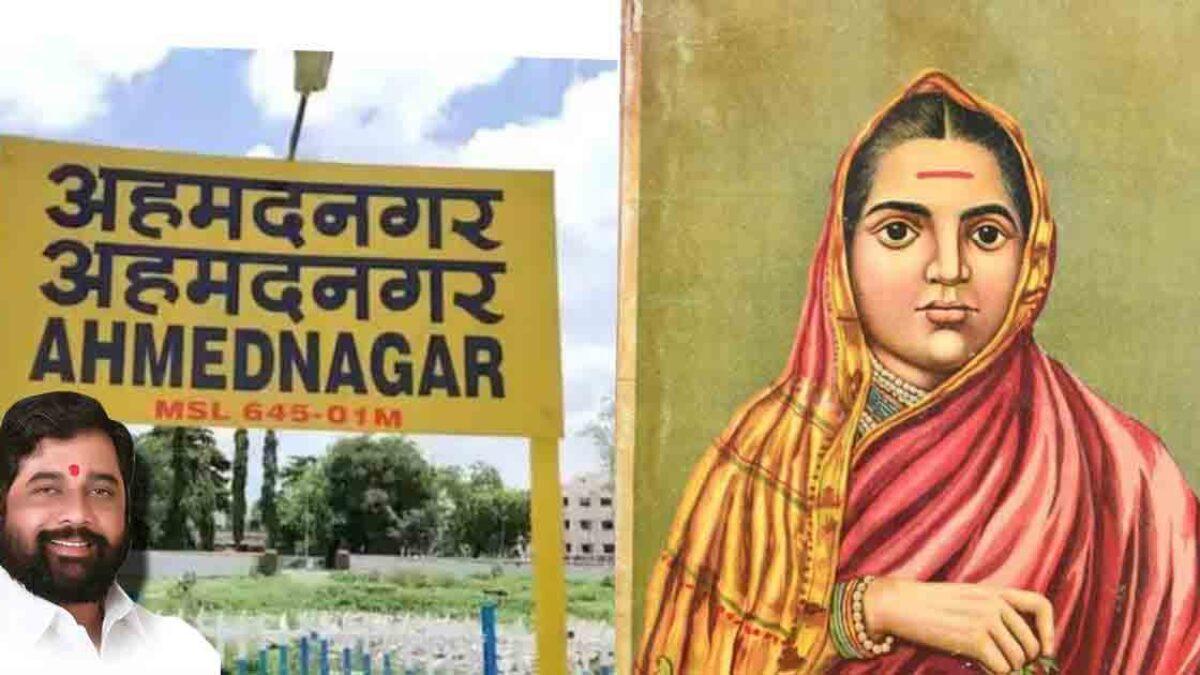The Maharashtra government has recently announced the renaming of Ahmednagar district to Ahilyadevi Nagar in honor of the 18th-century warrior-queen Ahilyadevi Holkar. This decision is seen as a significant step to appease and empower the Dhangar community, which holds considerable numerical strength in Maharashtra’s population. The move is part of a larger strategy by the ruling Bharatiya Janata Party (BJP) to diversify its support base and reduce the dominance of the Maratha community in the state’s politics.
Historical Background and Context
Ahmednagar, like Aurangabad and Osmanabad, derives its name from historical figures associated with Islamic rule. The renaming of these districts reflects a broader trend of dissociating names that have Islamic connotations in favor of indigenous cultural and historical figures. The decision to rename Ahmednagar as Ahilyadevi Nagar follows a similar pattern and aligns with the BJP’s pro-Hindutva stance.
Buy Prime Test Series for all Banking, SSC, Insurance & other exams
Empowering the Dhangar Community
The Dhangar community, consisting of pastoralist sheep herders and farmers, is considered the second-largest caste cluster in Maharashtra after the Maratha-Kunbi caste combine. With an estimated population of 12-15%, they hold significant numerical strength and play a crucial role in the state’s politics. However, despite their numbers, the Dhangars have had limited political representation in recent years.
Renaming Ahmednagar: Empowerment and Political Strategy
The decision to rename Ahmednagar as Ahilyadevi Nagar serves multiple objectives. Firstly, it recognizes and honors the historical legacy of Ahilyadevi Holkar, a revered figure among the Dhangar community. Secondly, it is a strategic move by the BJP to strengthen its support base among the Dhangars and OBC groups, thereby reducing the political dominance of the Marathas. By renaming districts with Islamic associations, the BJP aims to create a cultural and historical narrative aligned with its pro-Hindutva ideology.
About Maharani Ahilyabai Holkar, Key Points
- Ahilyadevi Holkar, also known as Maharani Ahilyabai Holkar, was an 18th-century queen and ruler of the Malwa kingdom in central India.
- She was born on May 31, 1725, in the village of Chondi in Ahmednagar district, Maharashtra.
- Ahilyadevi Holkar was married to Khanderao Holkar, the scion of the Holkar dynasty, at a young age. After her husband’s death, she took on the responsibility of ruling the kingdom.
- Under Ahilyadevi Holkar’s reign, the Malwa kingdom experienced a period of peace, prosperity, and efficient administration.
- She is widely recognized for her exceptional leadership, administrative skills, and dedication to public welfare. Ahilyadevi Holkar was known for her just rule and her commitment to the welfare of her subjects.
- During her reign, she undertook numerous philanthropic and public works projects, including the construction of temples, ghats (steps leading to riverbanks), wells, and rest houses across the kingdom.
- Ahilyadevi Holkar is particularly renowned for her patronage of the city of Maheshwar, which served as her capital. She transformed the city into a center of art, culture, and craftsmanship.
- Her reign also witnessed significant contributions to the development of infrastructure, trade, and agriculture in the Malwa region.
- Ahilyadevi Holkar’s governance was characterized by religious tolerance, and she supported the construction and restoration of temples belonging to various faiths.
- She died on August 13, 1795, in Maheshwar. Her legacy as a compassionate and able ruler continues to be celebrated, and she is regarded as one of the most remarkable women in Indian history.
Also Read: Prime Minister’s National Relief Fund (PMNRF): Empowering India in Times of Crisis



 Indian Olympic Medal Winners List Till N...
Indian Olympic Medal Winners List Till N...
 Who is the Inventor of the Gramophone?
Who is the Inventor of the Gramophone?
 HS Dhaliwal Appointed New DGP Of Andaman...
HS Dhaliwal Appointed New DGP Of Andaman...
